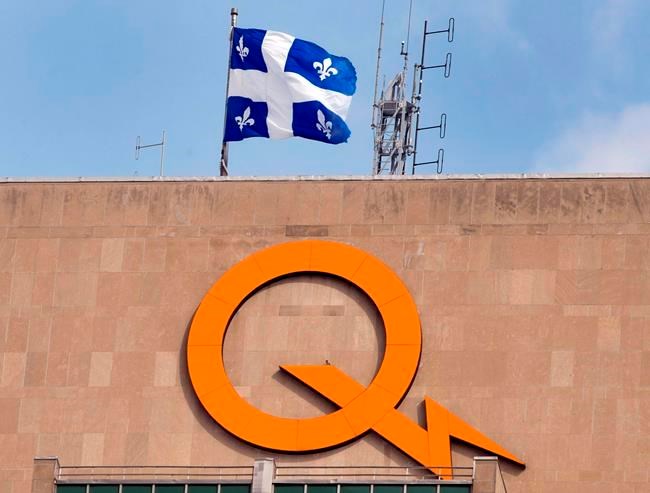MONTREAL — A Quebec Innu community is suing Hydro-Québec for $2.2-billion, claiming the Churchill Falls hydroelectric station has destroyed a significant part of its traditional territory.
The lawsuit filed Friday in Quebec Superior Court by the Innu of Uashat Mak Mani-Utenam claims the megaproject’s reservoirs and more than 1,000 kilometres of transmission lines “flooded and destroyed” part of their traditional territory and disrupted the community’s traditional activities.
“The Churchill Falls megaproject has had devastating impacts on our people,” Innu Chief Mike Mckenzie said in a written statement on Monday.
The lawsuit also names as a defendant Churchill Falls (Labrador) Corporation Ltd., which operates the power plant and transmission facilities.
The band council says construction of the 5,428-megawatt station in Labrador and transmission facilities in the 1960s and early 1970s was done without the consent of the community near Sept-Îles, Que.
In its statement of claim, Uashat Mak Mani-Utenam alleges Hydro-Québec and Churchill Falls (Labrador) Corporation "illegally appropriated" Innu lands and has benefited for decades from the power generated there. “If Hydro-Québec is to be a responsible company, it must redress its wrongs and demonstrate its respect for our lands, our people, and our rights,” Mckenzie's statement said.
A 1969 agreement with Newfoundland and Labrador that allows Hydro-Québec to purchase the majority of the electricity generated at the station and reap most of the profits ends in 2041.
The community is asking the court to recognize its Aboriginal title to the affected territory and wants an injunction to prohibit the Crown corporation from making any new agreement without the participation and consent of the band council.
The community says it will continue to suffer harm from Churchill Falls as long as it remains in operation, and to compensate for future losses the lawsuit seeks annual compensation equivalent to 12.5 per cent of the profits Hydro-Québec generates from the megaproject.
The lawsuit contains allegations that have not been tested in court. Hydro-Québec spokesperson Francis Labbé declined comment on the specifics of the case, saying the matter is now before the courts. But he expressed hope that ongoing dialogue with the Innu would establish a relationship based on trust with the community.
"Hydro-Québec seeks to develop and maintain harmonious and mutually satisfactory relationships with Indigenous communities in the context of activities related to its hydroelectric generation facilities," Labbé said.
"Over the past decades, we have signed more than 50 impact and benefit agreements with various Indigenous communities in Québec."
In 2020, the Innu Nation of Labrador similarly sued Hydro-Québec and Churchill Falls (Labrador) Corporation Ltd. for $4 billion in compensation for the ecological and cultural damage caused by the damming of the upper Churchill River in the early 1970s.
This report by The Canadian Press was first published Jan. 24, 2023.
This story was produced with the financial assistance of the Meta and Canadian Press News Fellowship.
Marisela Amador, The Canadian Press



